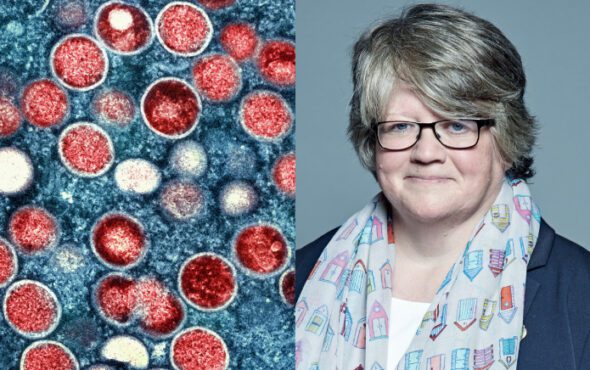
Three leading charities have come together to warn the newly appointed Health Secretary, Thérèse Coffey MP, that dealing with monkeypox needs to be a top priority.
The current outbreak has thrown a number of clinics into crisis, with many vital services – such as HIV prevention and contraception access – displaced by the need to deal with the virus.
In some cases, this has resulted in a 90% reduction in access to PrEP and long-acting reversible contraception, according to the British Association for Sexual Health & HIV.
Sexual health experts at Terrence Higgins Trust, National AIDS Trust and PrEPster have now come together to tell the government that getting this under control would be instrumental in avoiding an increase in STIs, unwanted pregnancies and people contracting HIV.
To address this issue, the charities have launched an e-action campaign which simplifies the process of writing to your MP to put pressure on the government to act in three key areas:
- Get the vaccine and accurate information on monkeypox to all who need it.
- Name a person responsible for monkeypox in the UK and the power and resources to respond to the outbreak.
- Funding to ensure there is no impact on wider sexual health services because of monkeypox.
Thérèse Coffey is the new Health Secretary — it’s now or never for the Government to get a grip on the monkeypox outbreak.
We're standing with @NAT_AIDS_TRUST and @TeamPrepster to push for urgent action.
Write to your MP today to pressure @ThereseCoffey to #ActOnMPX⬇️
— Terrence Higgins Trust (@THTorguk) September 22, 2022
“Sexual health services were already over-stretched and under-resourced before monkeypox, but now the situation is dire with unsustainable pressure being put on clinics and their staff,” said Ian Green, Chief Executive at Terrence Higgins Trust.
“We need to see action from the new Health Secretary as proof that they take their vitally important brief seriously. Thérèse Coffey must act now to stop monkeypox becoming endemic in the UK and protect the health of gay and bisexual men.”
The virus has so far disproportionately affect gay, bisexual and other men who have sex with men.
As of 16 September, the UK Health Security Agency (UKHSA) reported that there were 3,439 confirmed and 146 highly probable monkeypox cases in the UK, making a total of 3,585.
3,513 (98.6%) of these were in men and 49 in women.



